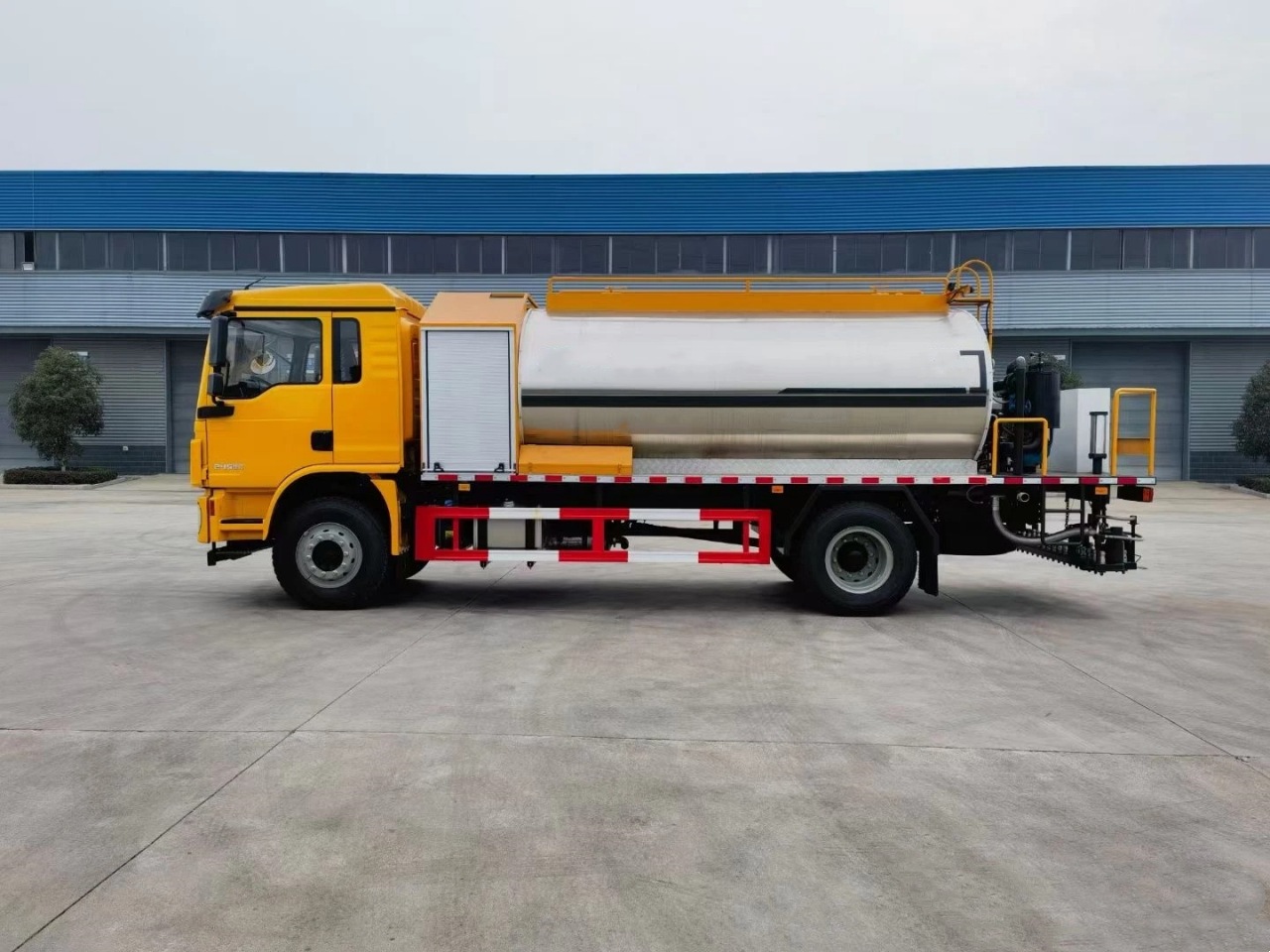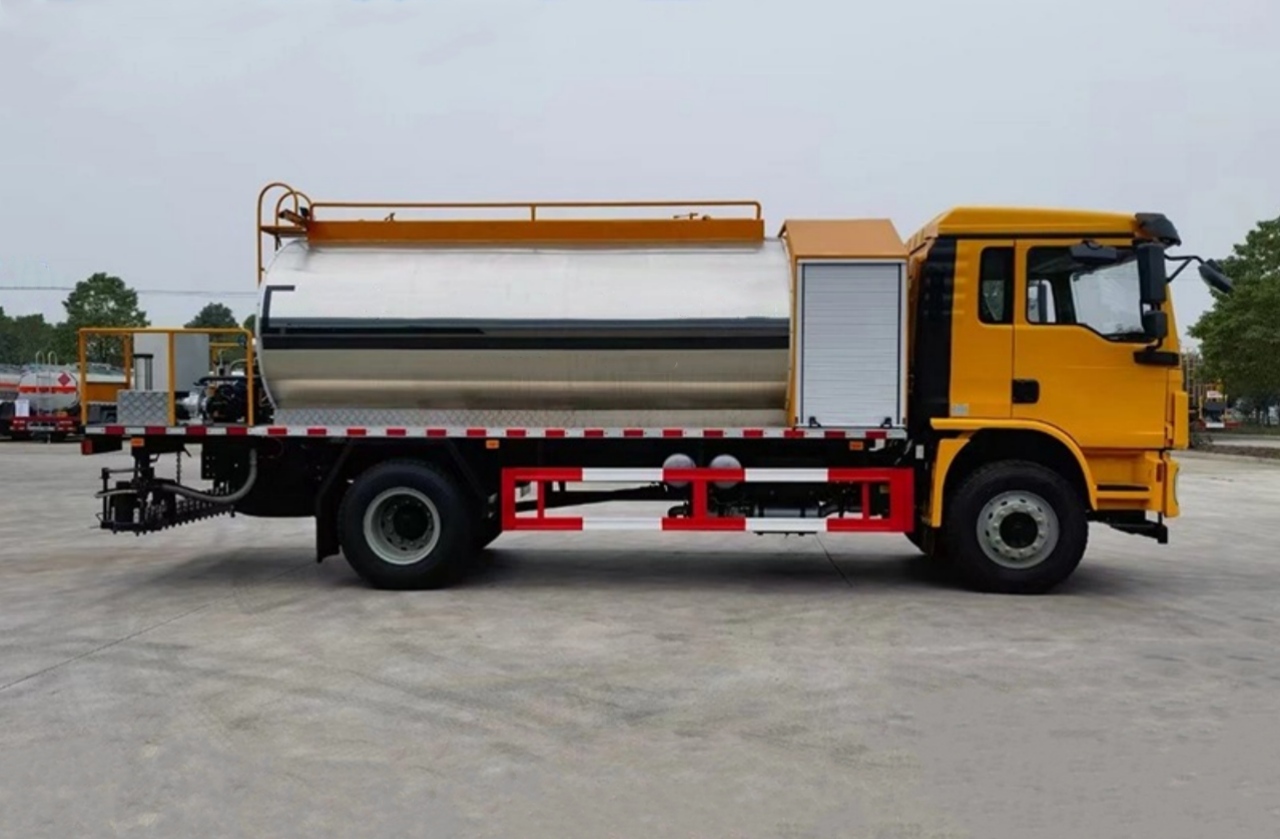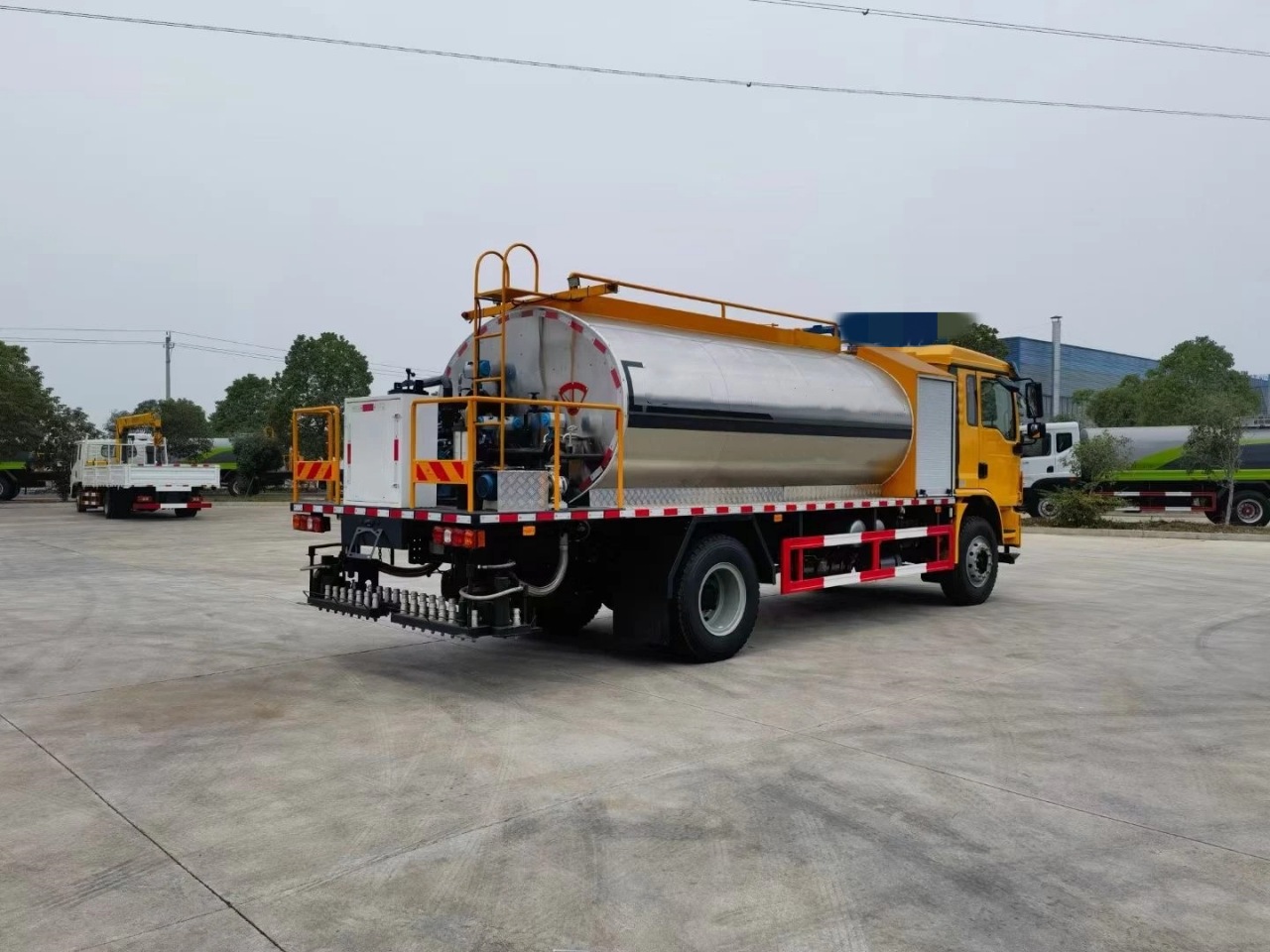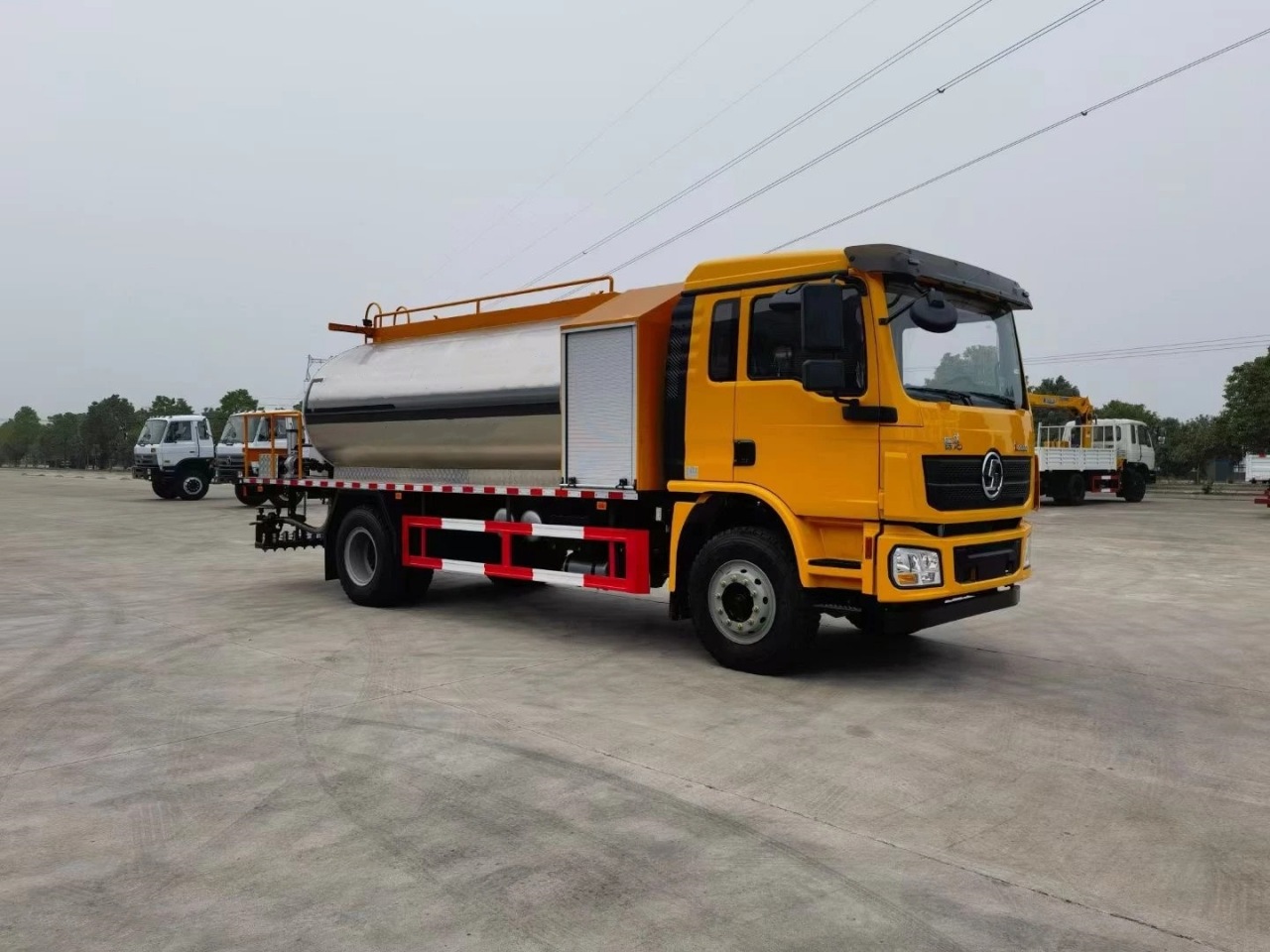Transporting hot asphalt is a crucial part of modern road construction and maintenance. The process demands not only precision in timing but also advanced equipment capable of handling the unique physical characteristics of asphalt at elevated temperatures. Enter the high-temperature asphalt tank truck — a specially engineered vehicle designed to ensure the safe, efficient, and thermally controlled transportation of bituminous materials. This article explores how these tank trucks simplify hot asphalt transport and play a key role in infrastructure development.
Understanding the Challenge of Asphalt Transport
Hot asphalt, also known as hot mix asphalt (HMA), is a mixture of aggregates and bitumen heated to temperatures typically between 140°C and 160°C (284°F to 320°F). Once mixed and heated, it must be transported promptly to paving sites before it cools and hardens, which would make it unusable. The temperature must be carefully maintained during transit, or the material risks losing its pliability and bonding properties.
Transporting asphalt, therefore, presents several challenges:
- Heat Retention: Asphalt must remain hot to stay workable.
- Viscosity Control: Bitumen thickens as it cools, which affects flow and pumpability.
- Material Integrity: Contamination, oxidation, and water ingress can ruin an entire load.
- Safety: Hot asphalt can cause severe burns and release fumes; Thus, handling must be secure.
High-temperature asphalt tank trucks are the industry’s solution to these issues.
The Role of High-Temperature Asphalt Tank Trucks
High-temperature asphalt tank trucks, also called bitumen tankers or asphalt carrier trucks, are purpose-built to transport asphalt at high temperatures while maintaining product integrity and ensuring road safety. These trucks are equipped with specialized insulation, heating systems, and safety mechanisms that allow contractors and suppliers to transport hot asphalt with ease.
1. Thermal Insulation and Heating Systems
One of the defining features of these tankers is their multi-layer thermal insulation, typically composed of high-density rock wool or polyurethane foam, encased in a protective aluminum or stainless steel jacket. This insulation minimizes heat loss and maintains internal temperatures for extended periods.
To further support temperature retention:
- Diesel-fired burners, electric heating elements, or thermal oil heating systems are used to reheat or maintain the asphalt temperature during long hauls.
- Temperature control sensors and thermostatic regulators ensure precise control, preventing overheating or excessive cooling.
This thermal design allows asphalt to remain within the required temperature range even during long-distance transport or while waiting at job sites.
2. Tank Construction and Material Compatibility
The tanks are typically made from carbon steel or stainless steel, coated internally with anti-adhesive materials or corrosion-resistant linings to withstand the sticky and acidic nature of bitumen.
Other design considerations include:
- Cylindrical shape with conical ends to prevent material from getting stuck during unloading.
- Internal baffles to reduce liquid surge and maintain vehicle stability.
- Manholes and inspection ports for easy cleaning and maintenance.
These structural enhancements help prevent contamination, make cleaning efficient, and ensure a longer service life.
Efficiency in Loading and Unloading
Time is a critical factor in hot asphalt transport. Delays can compromise the quality of the asphalt and disrupt construction schedules. Asphalt tank trucks are equipped with systems that streamline both loading and unloading processes.
- Top and bottom loading options provide operational flexibility at different asphalt plants.
- Pneumatic or gear-driven pumps facilitate fast and controlled discharge.
- Gravity-fed outlets and heated discharge valves ensure smooth flow even when the asphalt begins to thicken.
- Automated control panels and remote control systems reduce operator effort and exposure to heat and fumes.
These features not only improve productivity but also enhance worker safety by reducing the need for manual handling.
Safety and Environmental Considerations
Transporting hot asphalt carries inherent risks. Modern asphalt tank trucks are designed to mitigate these risks with a range of safety systems, including:
- Pressure relief valves to prevent over-pressurization during heating.
- Fire suppression systems near burner units.
- Emergency shut-off valves and spill containment trays to prevent accidents.
- Fume extraction ports or vapor recovery systems to control emissions during loading/unloading.
In terms of environmental protection, many manufacturers have improved tank insulation and burner efficiency to reduce energy consumption and lower greenhouse gas emissions. Some advanced models even use hybrid heating systems or solar-powered pre-heaters to support eco-friendly operations.
Applications in Infrastructure Projects
Hot asphalt transport is integral to several industries, especially:
- Highway and road construction
- Airport runway paving
- Bridge and overpass surfacing
- Municipal street repairs
The reliability of high-temperature asphalt tank trucks ensures that paving crews receive the material at the right time and in optimal condition. This allows for smoother operations, better surface quality, and longer-lasting pavements.
Large contractors operating across multiple sites often deploy asphalt tank truck fleets to maintain continuous supply lines, particularly in remote or rural areas where local asphalt plants are unavailable.
Customization and Emerging Trends
Modern asphalt tank trucks are increasingly modular and customizable. Depending on the operational need, buyers can select:
- Tank capacity (ranging from 5,000 to 30,000 liters)
- Number of compartments for different asphalt grades
- Chassis types (rigid, semi-trailer, or articulated)
- Heating modes (electric, diesel, thermal oil)
- Pump type and power source
Emerging technologies are also shaping the industry:
- Telematics systems enable real-time monitoring of temperature, location, and tank conditions.
- AI-based predictive maintenance helps reduce downtime and prolong service intervals.
- Eco-design initiatives are driving the use of recyclable materials and cleaner energy sources.
These trends point to a future where asphalt transport becomes smarter, greener, and even more reliable.
Conclusion
Hot asphalt transport is a highly specialized field that depends on the right equipment to ensure timely, safe, and quality delivery. High-temperature asphalt tank trucks offer a comprehensive solution with their advanced thermal insulation, robust heating systems, and safety features. They minimize temperature loss, enhance operational efficiency, and protect both workers and the environment.
Whether for large-scale highway construction or municipal resurfacing projects, these trucks are indispensable assets that make the complex task of hot asphalt transport remarkably easy. As technology continues to evolve, we can expect even greater innovations in asphalt transport, making road building safer, faster, and more sustainable than ever.





